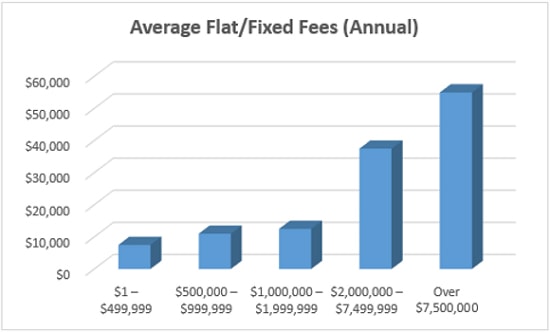
An analyst consultant can have many responsibilities. You will need to analyze data, develop recommendations and present your findings and conclusions. You'll also manage analysts who work on different projects, develop sector-specific knowledge, and develop core consultancy skills. No matter what your educational background is, there are many benefits to this position. Learn more. Here are four key benefits:
Interim titles
Although the job titles for consultants are simple and have remained unchanged over time, many companies give interim titles to their analysts and consultants. These titles may be official or unofficial, but they are helpful in visualizing the professional path of consultants. Interim titles are generally offered near the start or at the top of a consultant’s professional ladder. Here's a look at the way interim titles are awarded. What is an interim Title?
Analysts can move up in the ranks as their expertise and experience grows. Analysts can be classified as either an A1 analyst or an An A2, at some companies they may be called an A2 analyst or an A3. There are some interim titles that consultants can use to signify their career progression. However, senior analysts may assume more responsibility as the years progress. Other titles that may be used to describe consultants include Project Managers (Business Analysts), Functional Analysts (IT Leads), and even a CEO.

Salary
While the annual salary of a consultant analyst may vary depending on their experience, it typically falls between $50,000 and $90,000. An analyst who prepares reports and other documents may also suggest consulting firms' services such as project management, coaching, and others. These suggested services may result in increased revenue for the consulting firm and deeper relationships with clients. According to PayScale, the median annual salary of an advisory analyst will be $71,024 in 2020. Earnings will range from $51,000 to $84,000, while reported salaries in the past few years have topped the $100K mark.
The salary of a consultant analyst is highly dependent on a number of factors, including the level of experience and location. A more experienced consultant analyst is compensated higher than a recent graduate. It is also important to consider where you live, as salaries tend to be higher in larger cities. The cost of living in an area is often correlated to the salary of a consultant analyst. You might consider an MBA if you're interested in a well-paying job within Brooklyn, NY.
Work environment
An analyst consultant typically works in an office environment. Some positions require some travel. Most consultant analysts work in an office. The demands of the job are demanding, but many find the work stimulating and challenging. Analysts typically work 40 to 50 hours per week. However, some jobs may require more travel. A successful career in this field requires a strong background in statistics, mathematics, and communication skills.
Although the work environment for a consultant analyst is often similar to that of an accountant, many analysts begin their careers with several years of experience in a different field. It is not easy to get a job as a consultant. Many organizations try to hire candidates with more relevant work experience before they hire them. Analyst jobs are often filled by market research analysts, computer systems analysts, and accountants. Analysts are expected to lead the implementation of business-oriented initiatives once they have been hired.

Education required
A postgraduate degree in business administration or related subject is not required to become a consultant analyst, but a Masters degree can be helpful. Many of these courses can be taken online and many employers will consider candidates who have relevant work experience. Most consultants have business or technical experience. A degree in a related field can help them get their first job. For trainee schemes, many large consulting companies will accept college graduates.
In addition to a bachelor's degree, management analysts often hold a master's degree. Many companies prefer to hire people with a master's in management. As the experience of the consultant increases, he/she will take on more responsibilities. Some will manage complex project teams, while others will work with new business. Many senior consultants are promoted to management roles in non-consulting businesses. MBAs are desirable qualifications.
FAQ
Can anyone be a Consultant?
A consultant is someone who assists you in achieving your goals by offering advice and suggestions on how to achieve it faster, cheaper, and so forth.
A consultant may help you solve problems, make decisions, or negotiate with others.
Many consultants are hired for specific projects and tasks.
In fact, most consultants are paid hourly or daily rates rather than per project.
What is the difference between a consultant and an advisor?
An advisor provides information about a topic. A consultant is able to provide solutions.
Consultants work directly with clients to help them reach their goals. Clients are referred to advisors through books, magazines and lectures.
Why would you want to hire consultants?
There are many reasons why you might need to hire consultants:
-
An organization might have a particular problem or project that requires solving
-
You are looking to learn new skills or improve your existing skills
-
You'd like to work in conjunction with an expert in a specific field
-
You have no other choice but to do the job.
-
Feel overwhelmed by all the information available and don't know where you should start
-
You can't afford full-time employment
A word of mouth referral is the best way you can find a competent consultant. Ask your friends and family if they know of any reliable consultants. If you are already acquainted with someone who works as an advisor, ask them for recommendations.
You can use online directories such as LinkedIn to find consultants in your local area.
What type of jobs can a consultant do?
Being a consultant will require you to have a solid understanding of business strategy as well as operations. You need to be able to comprehend how businesses function and how they fit in with society.
You must have excellent communication skills as well as the ability to think critically in order to be a consultant.
Consultants must be adaptable because they may be asked to do different tasks at different times. They must be flexible and able to change directions quickly if needed.
They must be willing to travel for their clients. This type work can take them anywhere in the world.
They also need to be capable of handling stress and pressure. Sometimes, consultants may be required to meet strict deadlines.
As a consultant, you may be expected to work long hours. This can mean you might not always receive overtime compensation.
What is a consultant?
A consultant is someone who offers services to others. It's not just a job title; it's a role where you help others achieve what they want from life. You do this by helping them understand their options and helping them make the right choices.
Consultants can help you solve problems or overcome challenges when working on projects. They offer guidance and advice about how to implement such solutions.
A consultant should be able to answer questions about anything related to business, technology, finance, law, management, leadership, strategy, operations, customer service, human resources, etc.
Statistics
- On average, your program increases the sales team's performance by 33%. (consultingsuccess.com)
- Over 62% of consultants were dissatisfied with their former jobs before starting their consulting business. (consultingsuccess.com)
- 67% of consultants start their consulting businesses after quitting their jobs, while 33% start while they're still at their jobs. (consultingsuccess.com)
- According to IBISWorld, revenues in the consulting industry will exceed $261 billion in 2020. (nerdwallet.com)
- So, if you help your clients increase their sales by 33%, then use a word like “revolution” instead of “increase.” (consultingsuccess.com)
External Links
How To
How to Start a Consultancy Company and What Should I Do First
Starting a Consulting Company is a great way to make money online from home. It doesn't require any prior business experience nor capital. Building a website is a great place to start a consulting business. To promote your services, you will need to create a website.
With these tools, you can put together a marketing plan that includes things like:
-
Content creation (blogs).
-
Establishing connections (contacts)
-
Generating leads (lead generation forms).
-
Selling products on e-Commerce websites
Once you've created your marketing strategy, the next step is to find clients who are willing to pay you for your services. Some people prefer to go through networking groups and events, while others prefer to use online methods such as Craigslist, Kijiji, etc. The decision is up to each individual.
Once you have found clients, you should discuss terms and payment options. This could include hourly or flat fees as well as retainer agreements and flat fee contracts. You need to be clear about what you expect of a client before they accept you as a client.
Hourly agreements are the most common contract type for consultancy services. You agree to offer certain services at a fixed fee each month or every week. Based on the service you provide, you might be able to negotiate a discount based on the length of your contract. When you sign a contract, make sure you fully understand it.
The next step is to create invoices and send them to your clients. Invoicing is one thing that looks simple until it's actually done. There are many ways that you can invoice your clients depending on what your preferences are. For instance, some prefer their invoices to be emailed directly to clients while others prefer hard copies to be mailed. No matter which method you choose to use, it is important that it works for you.
Once you have created invoices, it is time to collect the payments. PayPal is preferred by most people because it is simple to use and offers many payment options. However, other payment processors are available, including Stripe, Square Cash, Google Wallet, Apple Pay, Venmo, etc.
Once you are ready to start collecting payments, it is time to open bank accounts. Separate checking and savings accounts allow you to keep track of income and expenses separately. Setting up automatic transfers into your bank account is also helpful when paying bills.
While starting a consultancy company may seem daunting, once you master the basics, it becomes easy to manage. Our blog post contains more information on how to start a consulting business.
It's a great way for extra income without having to worry about hiring employees. Many consultants work remotely, which means they don't have to deal with office politics or long hours in the office. Since you are not tied down by regular working hours, you have more flexibility than a traditional employee.